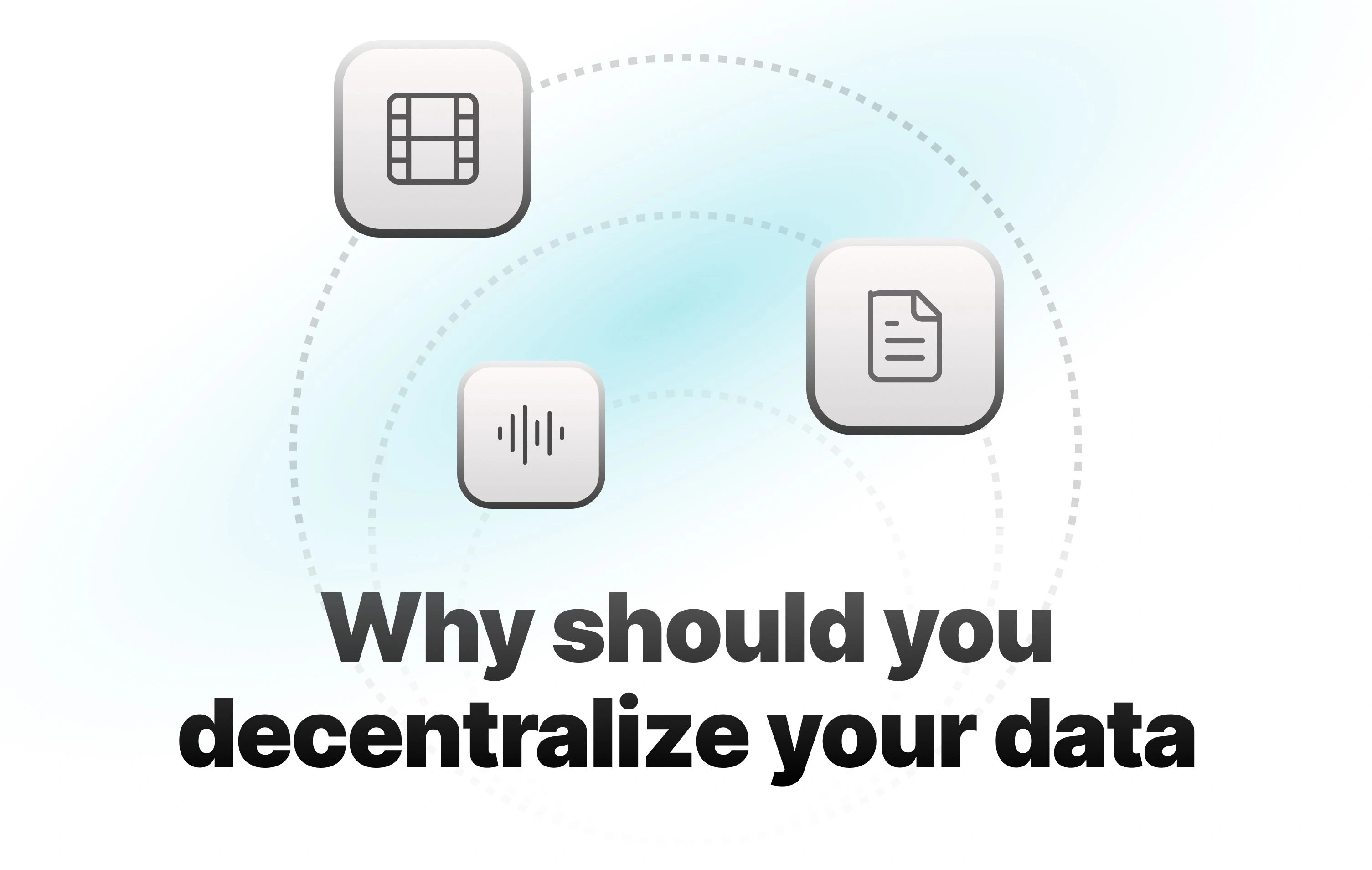The Dangers of Data Centralization and the Decentralized Solution with Etherna
User-generated content—such as social media posts, blogs, and forum discussions—has become essential to staying connected in the digital age. However, major tech corporations are increasingly tightening their grip on the internet, from its infrastructure to the content it hosts and moderates.
The web is no longer the democratic space it once aspired to be. A handful of private companies now dominate the online ecosystem, competing not for users—but for control over our data. That’s why it’s more important than ever to reclaim ownership of our personal information.
Why Do Companies Collect Our Data?
Over the years, businesses have come to realize how incredibly valuable user data can be. While an individual may seem insignificant on their own, our data gains tremendous power when viewed at scale.
By aggregating and analyzing data, companies gain deep insights into both current and potential customers. Through diagnostic, predictive, and prescriptive analytics, they can craft personalized user journeys that guide people toward purchasing decisions.
Whether it’s fine-tuning product offerings or generating hyper-targeted advertisements, businesses have much to gain from constructing a holistic view of their users. But what do users actually gain in return?
The Hidden Dangers of Centralized Digital Ecosystems
For years, people have enjoyed the convenience of “free” digital services—from messaging apps and social media platforms to cloud storage and content streaming. But that convenience has come at a cost.
Tech giants like Amazon, Google, Facebook, and others have become deeply embedded in every aspect of our digital lives. While this level of integration may seem harmless on the surface, the risks become clear when we experience data breaches, service outages, or intrusive legislation.
Today, users increasingly feel surveilled. Their personal data is often sold to the highest bidder. There is a growing demand for online experiences that are private, secure, and truly owned by the user.
User profiles often include everything from home addresses and credit card details to Social Security numbers and government-issued IDs. When these centralized databases are breached, hackers can steal everything needed to open bank accounts, apply for loans, or worse.
When a tech giant fails to secure its infrastructure, millions suffer the consequences. People are growing wary of the price they pay for so-called “free” services. They are demanding freedom, anonymity, and control—and rightfully so.
This Is Why Data Decentralization Matters
Data decentralization means spreading information across a network of independent nodes rather than placing it under the control of a single authority. While decentralization is often discussed in the context of businesses and blockchain, it has immense benefits for individual users as well.
Unlike centralized companies that may prioritize profits over privacy, decentralized systems give people a direct role in how their data is handled. Decentralization empowers users to reclaim control, reduce exposure to data leaks, and protect their digital identity.
How Start Protecting Your Personal Data
Although completely eliminating your online footprint is nearly impossible, there are several ways to decentralize your digital presence and mitigate risk:
- Log Out of Tracking Accounts: Staying logged into platforms—even when you're not using them—gives those services ongoing access to your behavior. Log out from services known for data collection, and adjust device settings to limit background access. Always review privacy policies before granting permissions.
- Avoid Single Sign-On (SSO): Services like Google, Facebook, and Apple offer SSO for convenience—but they also track you across platforms, even with VPNs. If you use one login across multiple websites, they know exactly where you go and what you do. Use local accounts instead.
- Use Secure Messaging Platforms: Many free messaging apps sell user data to advertisers. Even those with features like end-to-end encryption may still collect metadata, including your phone number and location. Opt for trusted, privacy-first apps—both free and paid options exist.
- Set Up Anonymous Payment Methods: Storing payment information across multiple services increases the risk of exposure. To enhance privacy, use prepaid debit cards, gift cards, or anonymous payment apps like Cash App for everyday transactions.
- Create Multiple Email Addresses: Using one email for everything centralizes your identity. Instead, segment your digital activity with separate email accounts for shopping, work, subscriptions, and banking. This also acts as a buffer if one provider is compromised.
Etherna: A Safer, Decentralized Future
The rise of digital mega-platforms like Google, Facebook, and Amazon has enabled a seamless online experience—but at the cost of user autonomy and data security. Etherna offers a powerful, privacy-first alternative.
With its decentralized architecture, Etherna distributes user data across a network of independent nodes, eliminating the single points of failure typical in centralized systems. This structure significantly increases resistance to data breaches and unauthorized access.
More importantly, Etherna puts you in control. Your data is no longer vulnerable in one central location—it’s protected, private, and governed by transparent, community-driven protocols. Etherna doesn’t just offer a storage solution; it redefines what it means to own your digital presence.
A More Democratic, Secure Internet Is Possible
The internet can and should be a place where users—not corporations—control their information. Decentralization through solutions like Etherna is not just a technical shift; it’s a social movement toward restoring digital sovereignty. Now is the time to take back control and embrace a more secure, user-owned web.
